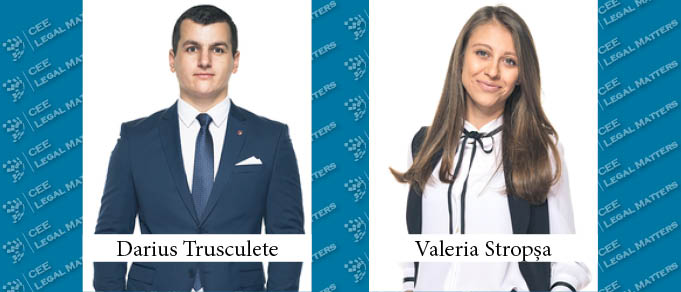In Romania, companies that commit severe professional misconduct are excluded from participation in public procurement procedures. Yet, these companies have received some good news recently thanks to a common opinion issued by the Romanian National Agency for Public Procurement ("ANAP") and the national Competition Council (the "Common Opinion"). In this article we analyse the clarifications introduced by the Common Opinion on how self-cleaning can be achieved by blacklisted companies.
Context
The Romanian legislation on public procurement, utilities procurement and works/services concessions regulates a series of mandatory grounds for exclusion meant to protect contracting authorities/entities from participating in public procurement tenders and, subsequently, the awarding of contracts to companies whose performance in previous tenders/contracts was suboptimal or whose actions may raise suspicions about their integrity.
Among these cases are situations in which companies have committed severe professional misconduct that casts doubt on their integrity, i.e. violations of competition law regarding cartels aimed at bid rigging. The current legislation mandates that these violations be acknowledged by adequate means of proof, such as a decision of a court or administrative authority.
Exclusion based on this ground operates for a three-year term with important consequences on the activity of the companies concerned. To ensure the proportionality of the exclusion measure in relation to each company having committed such deeds, the relevant legislation establishes the possibility of "self-cleaning" through concrete measures taken in order to prove credibility.
The legislation establishes that to be considered as acceptable proof the following measures must be analysed on a case-by-case basis: active cooperation with competent authorities, reorganisation measures, implementation of control systems, etc.
Clarifications introduced by the Common Opinion
Given the general character of these provisions, the Common Opinion clarifies the concrete measures taken in the area of competition that contracting authorities/entities may consider in assessing the exclusion of a company from a public procurement.
According to the Common Opinion, these are decisions issued by the Competition Council (in the last three years) by which it is acknowledged that a more favourable sanctions regime is applied due to: (i) the application of clemency policies or (ii) the admission that anticompetitive practices have been committed.
In addition, the Common Opinion mentions the possibility to submit evidence in regard to the effective implementation of a competition compliance programme, i.e. a programme focused on the prevention of cartel-type deeds aimed at bid rigging.
The application of a favourable sanctions regime is meant to reclaim the admission of committing anticompetitive practices by economic operators investigated by the Competition Council.
Practical aspects still face questions
Although the Common Opinion backs contracting authorities/entities and economic operations, the final decision regarding the exclusion of these operators remains with the contracting authorities/entities. Considering the severity and the circumstances of the misconduct, contracting authorities/entities still have a margin of appreciation with respect to the exclusion.
Another aspect which may lead to problematic situations is the difference in treatment between economic operators that have benefited from the clemency policy or have admitted guilt and those that have not. A decision of the Competition Council is not definitive and, implicitly, does not remove the presumption of innocence which benefits each economic operator.
Therefore, if an economic operator is sanctioned by the competition authority for participating in a cartel aimed at bid rigging, being further excluded from public procurement, a problem may arise if the decision of the Competition Council is subsequently annulled in court. In this case, the economic operator that could not benefit from self-cleaning, given that it has not applied for clemency or has not admitted guilt, may consider itself prejudiced by a potentially unjustified exclusion from a public procurement procedure.
Considering the important consequences of such an exclusion on the activity of economic operators, contracting authorities/entities should seek the Competition Council's opinion in order to avoid any disproportionate exclusion from tenders.
For more transparency, the Competition Council published on its website an updated list of economic operators that have been sanctioned for cartel-type deeds aimed at bid rigging, as well as information about the application of clemency policies or admission of guilt, and the existence of a competition compliance programme.
Conclusion
The practical functionality of these clarifications will be tested going forward. In any case, the Common Opinion is an important step towards greater transparency and unification in the practice of contracting authorities/entities as regards exclusion from public procurement.
By Darius Trusculete, Associate, and Valeria Stropsa, Associate, Schoenherr



